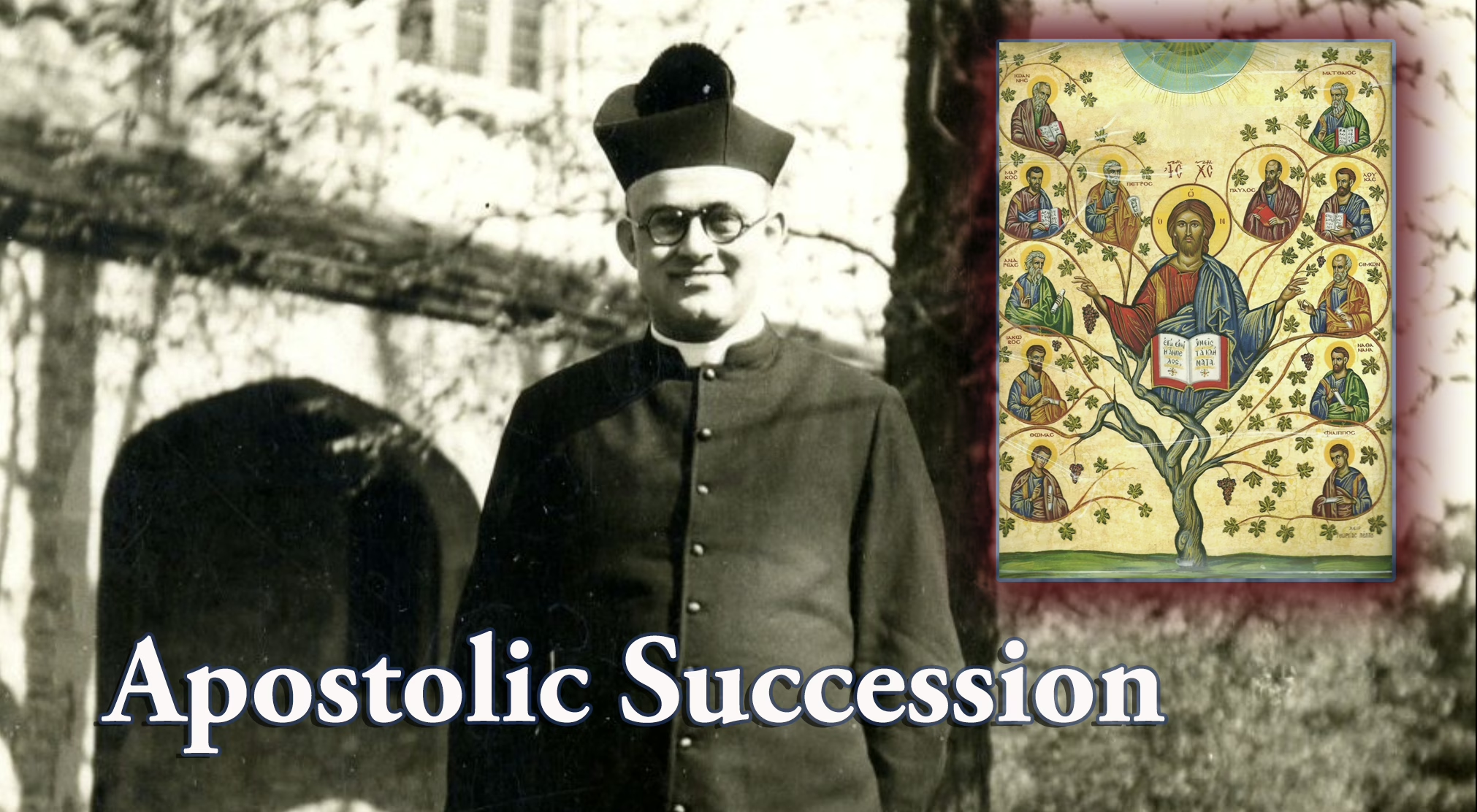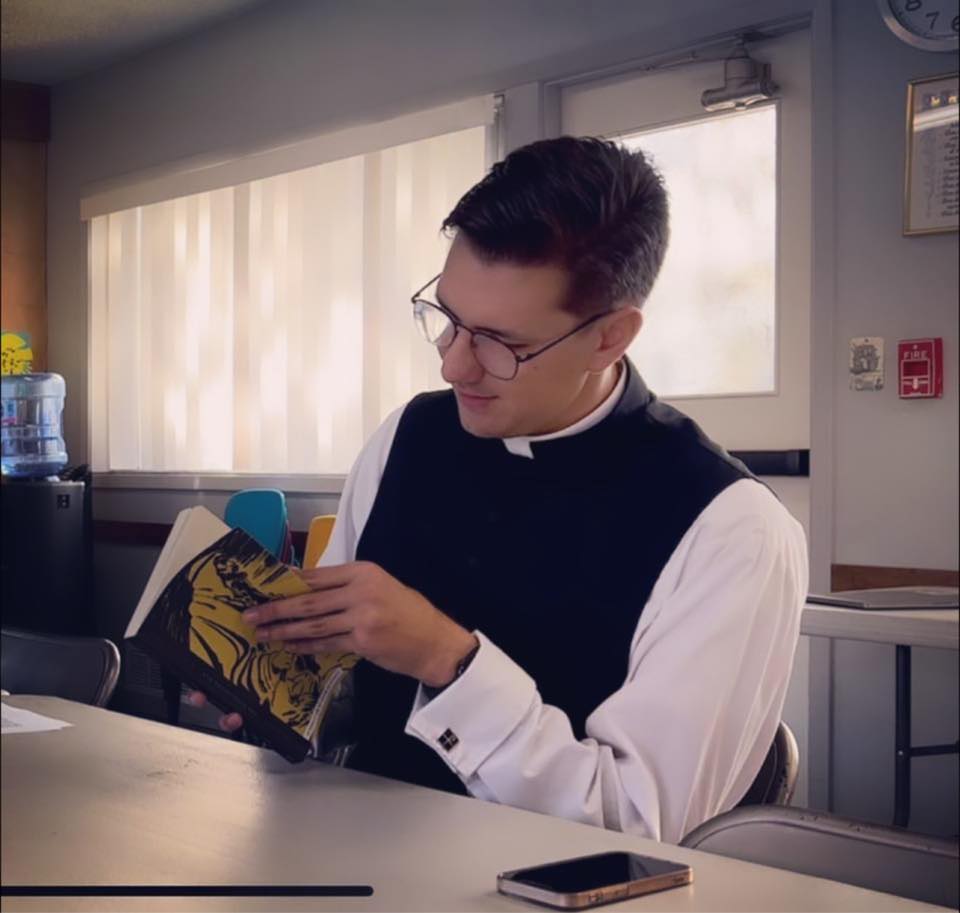In the next section of his book (pp. 20–28), Cirlot turns to those who stop short of denying Apostolic Succession outright, yet contend that because it cannot be proven with absolute certainty, it should not be required of Christians.
He cautions that such reasoning is perilous, for it risks treating vital doctrines as optional and eroding the Church’s unity around other universally held “catholic” truths.
He breaks them down into three main issues:
- Does the burden of proof really rest on Catholics in the present case?
- Is it correct to insist that all doubtful points must be treated as non-essentials?
- Just how much does Catholic apologetics need to ask from history?
Essential to this argument is the concept of the “Deposit of Faith” (the body of revealed truth entrusted to the Church) which is received as a whole rather than as a collection of individual doctrines open to debate over time. These truths are not arrived at merely by weighing historical evidence, which may or may not have survived, but are accepted as part of the Church’s authoritative teaching from the beginning.
From this perspective, it is an error to assume that any doctrine lacking absolute historical proof must therefore be regarded as non-essential.
To oversimplify, the “Deposit of Faith” describes how the Church’s councils do not invent or create new doctrines, but serve as guardians and custodians, defending and clarifying truths already entrusted to the Church.
Is Apostolic Succession part of the Deposit of Faith?
Cirlot argues that the Early Church unavoidablt had far better access to historical evidence than we do today. It possessed documents now lost to time, eyewitnesses to the events themselves, and a living oral tradition that consistently upheld the teaching of a Church with Apostolic Succession.
His point is that this earlier evidence was never employed in the Church’s history to disprove Apostolic Succession. If the episcopal model was not the Apostolic model, surely some pocket of the church would have protested such radical changes in the church’s government?
“I think we shall there see that not only did the Catholic Church clearly and beyond reasonable doubt hold the same doctrines concerning Episcopacy and Apostolic Succession which she holds to-day, from no later than the middle of the second century, but that she already at that time believed them to come to her from the Apostles and their immediate successors; and that the earlier evidence (1) is at least benevolently neutral toward this conviction, (2) raises no serious difficulties for it, and (3) at some points gives it very strong support.” (pg. 26, bold emphases added)
His point is this:
If we can show that the Early Church had an episcopal form of government and if this same group understood it to come from the apostles, then the burden of proof shifts: anyone who rejects that view must present strong external evidence to overturn it.
Without such evidence, the historical and traditional case for Apostolic Succession stands.
Practical Issue: Holy Orders and Bishops
This argument for the burden of proof on the innovator is applied to our understanding of ordination.
“It had been generally understood for centuries by all, including these men themselves at the time they were ordained to the Priesthood in the Catholic Church (for such as were so ordained), that ordination was just precisely the one thing they were not being given the power to do.” (p. 27)
This is precisely why the Anglican Church retained episcopacy during the Reformation: it had been the accepted and universal position of the entire Catholic Church for many centuries beforehand.
From at least the 4th century episcopacy was the authoritative and unquestioned norm (positively affirmed, for example, in Canon 3 of the First Council of Nicæa in 325). To replace it would require Herculean historical evidence. While a few Fathers are sometimes quoted as believing that the earlier Church allowed presbyters to ordain, these alleged “pro-presbyter ordaining” writers themselves lived in a context where episcopacy was indeed the sole recognized and orthodox form of ministry for valid ministry.
“Even that school of Fathers and Schoolmen who thought, or are alleged to have thought, that mere presbyters had at one time the power to ordain did not maintain that they still had that power in the sixteenth century, or for many centuries before that time. (pg. 27)
Cirlot argues that any position outside of unbroken tradition in the Catholic deposit of faith is “revolutionary” and that the:
“burden of proof would be on those initiating the revolution, not on those failing to join in it.” (pg. 28, emphasis added)
What About the “Necessity” due to Bad Bishops?
Some non-Episcopal Protestants plead that, although this may have been the Catholic view, it was impossible to maintain under the circumstances of the Reformation.
Cirlot points out that:
“Bishops with Apostolic Succession were converted to the Protestant cause, and could have given them a valid succession had they wanted it.” (pg. 28)
I would argue that the earlier generations of Protestant leaders recognized that having bishops actually strengthened the Protestant cause.
John Calvin—no slouch in church history—sought episcopacy if it could be permitted.
As recorded from Archbishop Parker’s papers, Calvin and other Protestant leaders “would have had episcopacy, if permitted,” but circumstances and opposition made it impossible. Calvin even wrote to the English clergy in King Edward VI’s reign to confer on the matter, though his letter was intercepted by Bishops Gardiner and Bonner, and the opportunity was lost.
Lutheran Reformer Philipp Melanchthon, Luther’s close collaborator and principal author of the Apology of the Augsburg Confession, wrote:
“We are pleased with the ancient division of power into the power of order and the power of jurisdiction. The bishop has the power of order—that is, the ministry of the Word and Sacraments; he also has the power of jurisdiction—that is, the authority to excommunicate those guilty of open crimes, and to absolve them if they are converted… The bishops have the power of rule and coercive correction, in order to direct their subjects to the goal of eternal blessedness.” (Apology of the Augsburg Confession, Article XXVIII “Of Ecclesiastical Power”)
Early Lutheran territories did retain both Apostolic Succession and Episcopacy (e.g., 16th Century Sweden, Finland, Denmark, and Norway).
For many Protestants, however, the rejection was deliberate:
“The Catholic doctrine was hated and scornfully rejected, and there was no faintest desire to retain a valid Catholic succession.” (pg. 28)



Leave a Reply